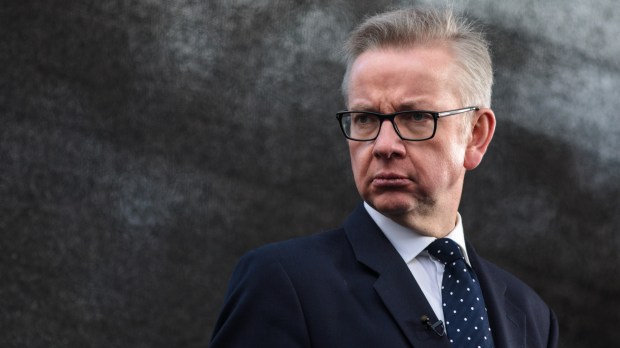Three weeks ago Amber Rudd travelled to Christ Church, Oxford, to speak to students about her experiences of being a female politician. She was there at the invitation of the UNWomen Oxford UK society, which had organised a number of events in the run-up to International Women’s Day on 8 March. But half an hour before she was due to appear, Rudd was told the event had been cancelled. Nothing to do with coronavirus, which had not yet swept the country. Rather, it was because a number of students had protested about the ex-Conservative MP being allowed to speak. Rudd had been no-platformed.
The society published an apology on its Facebook page, but not to the former home secretary. Instead, it apologised ‘for all and any hurt caused to our members and other wom*n [sic] and non-binary people in Oxford over this event’. According to the society’s now ex-president, Felicity Graham, she had to pull the plug after protesters drew attention to Rudd’s links to the Windrush scandal. ‘It was ultimately my decision but every single person on the committee was against and I was given no choice,’ she said. ‘It was the Oxford African and Caribbean society — who hold a lot of power — who really applied the pressure and forced us to cancel.’
Incredibly, this was the second such incident at Oxford in less than a week. Five days earlier, Selina Todd, Oxford professor of modern history, had been no-platformed by the organisers of an event at Exeter College to commemorate the 50th anniversary of the first Women’s Liberation conference. She was given slightly more notice than Rudd — she was notified the night before — but the reason was the same. A group of activists had objected to Todd being allowed to speak and the organisers had capitulated. The astonishing thing is that she had warned her hosts back in October that some trans activists might object to her speaking because of her ‘gender critical’ views, but the organisers had assured her they wanted to hear from a wide range of voices. Having been told this, Todd threw her weight behind the event, enlisting the support of the Oxford history faculty, securing funding and asking her friends in the media to write about it.
Trying to put a stop to this kind of censorship is one of the reasons I’ve set up the Free Speech Union. Some apologists for the no-platformers have argued they were just exercising their speech rights. After all, they weren’t obliged to give Amber Rudd or Selina Todd a platform. But no one is arguing the organisers had to have invited them in the first place. That was entirely a matter for them. However, having issued the invitations, they were under an obligation not to rescind them, because that is effectively granting a right of veto to any group of activists who want to silence those they disagree with.
I fired off a number of letters to the Oxford authorities, including the Proctors’ Office, pointing out that allowing protesters to no-platform speakers whose views they disagree with is contrary to the university’s procedures, codes of practice and policies with regard to freedom of expression, as well as a potential breach of s43 of the Education (No. 2) Act 1986. It’s worth recalling that that legislation, which imposes a legal duty on higher education providers to uphold free speech, was brought in by a Conservative government that had grown tired of seeing Tory MPs being constantly no-platformed. Gavin Williamson, the current Education Secretary, has threatened to introduce further measures to strengthen free speech unless universities do more to defend it, but I’m not convinced that’s necessary. Rather, we need to make sure the existing rules are upheld. There’s no shortage of high-sounding declarations at Oxford about the university’s commitment to free speech, including a robust statement by Timothy Garton Ash and Ken Macdonald on the university’s website. Unfortunately, that principle is more honoured in the breach than the observance.
I have now heard back from the Proctors. They have upheld the Free Speech Union’s complaint about Rudd’s no-platforming, de-registered the society responsible, and ordered it to apologise to her. Let’s hope that sends a message to the protesters. The way to win an argument with a political opponent is not to ban them from speaking, but to engage them in open debate. Free speech is for every-one, not just those who share your narrow sectarian point of view.
Got something to add? Join the discussion and comment below.
Get 10 issues for just $10
Subscribe to The Spectator Australia today for the next 10 magazine issues, plus full online access, for just $10.
You might disagree with half of it, but you’ll enjoy reading all of it. Try your first month for free, then just $2 a week for the remainder of your first year.















Comments
Don't miss out
Join the conversation with other Spectator Australia readers. Subscribe to leave a comment.
SUBSCRIBEAlready a subscriber? Log in